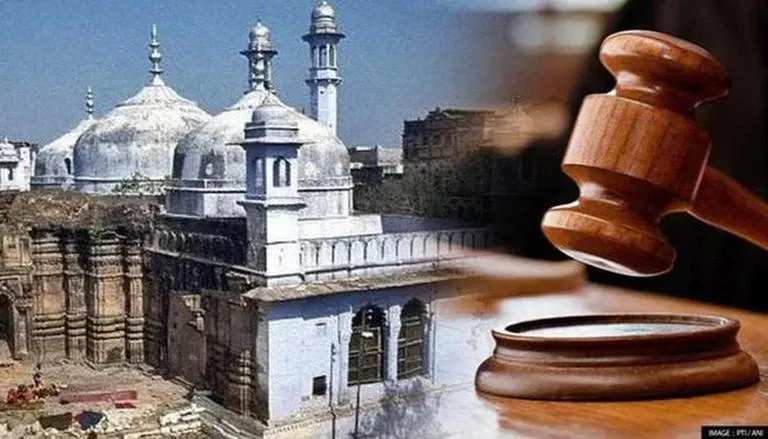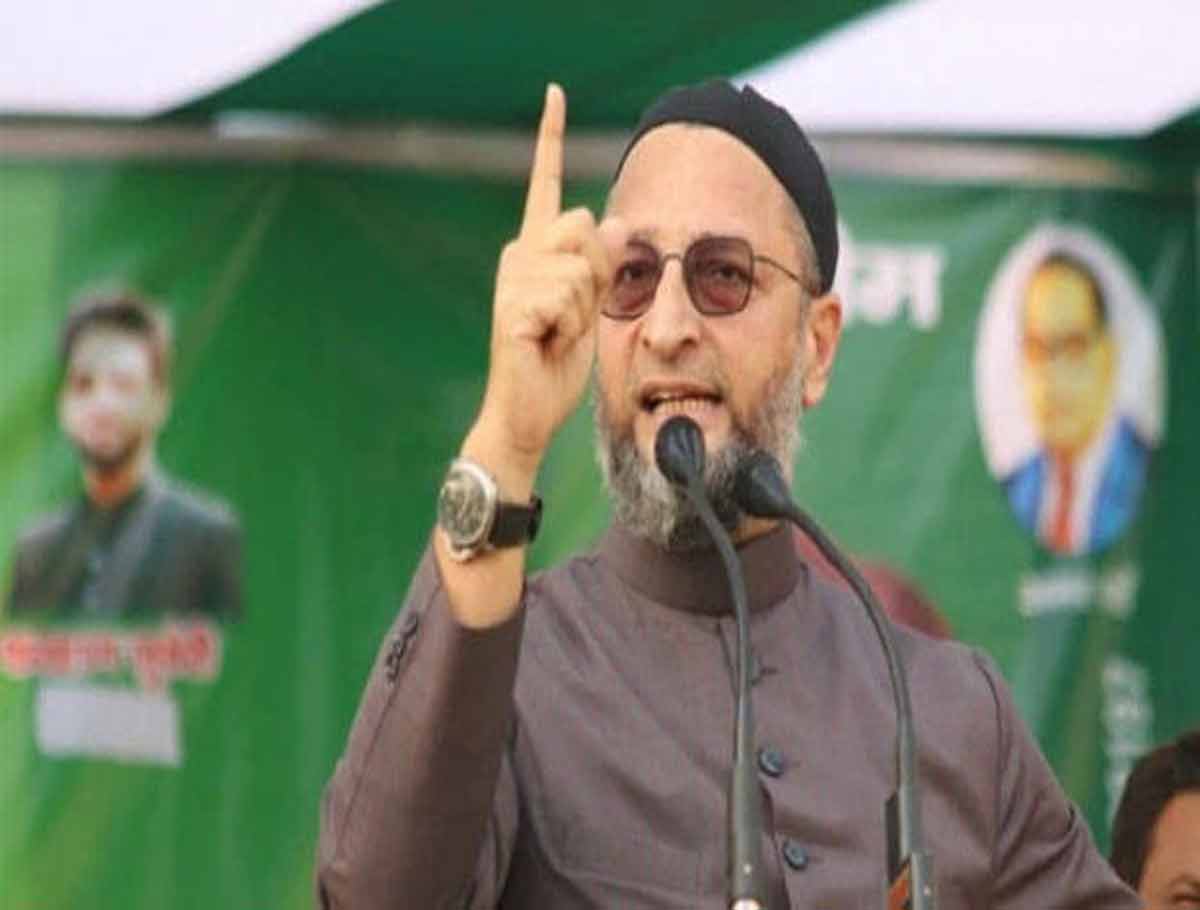Hyderabad: Asad Owaisi, the head of AIMIM, thinks that the Gyanvapi case’s court order in Varanasi could lead to interminable litigation and a recurrence of the Babri Masjid dispute, sending the nation back to the 1980s and 1990s. The Hyderabad MP also believes that the court’s decision and the ensuing protracted legal battles could destabilise the nation.
Owaisi, who expressed concern that more concerns will be raised following the Supreme Court’s decision in the Babri Masjid case, believes that his worst fears are being realised.
The president of the All India Majlis-e-Ittehadul Muslimeen (AIMIM) expressed concern that everyone will now rush to court claiming that he was doing a certain thing at a place of worship or was in possession before August 15, 1947, stating that the Gyanvapi case order will render the 1991 Places of Worship Act’s very purpose useless.
“I think this decree will spark a lot of fresh confrontations across the nation. Everyone will claim that we performed this (procedure) at a house of worship of a different faith prior to August 15, 1947,” he told IANS. “How can such a ruling be made when the Supreme Court explicitly stated in the Babri Masjid decision that the 1991 Act will form the fundamental framework of
All places of worship retain their religious identity as it existed on August 15, 1947, thanks to the 1991 Act. It forbids a house of worship from changing its religious identity. According to the Act, a house of worship that was in existence on August 15, 1947, shall retain its religious identity as of that date. “The legislation was designed to put a stop to such disputes once and for all, but with this (Gyanvapi case) judgement, it appears that legal action will be taken in all of these instances. The goal was to ensure that old disputes were resolved. This never-ending legal battle will now go on. It is possible for Babri Masjid to occur again by permitting a lawsuit to go forward “added he.
“The scenario we had feared is playing out in front of us. There might be more of these cases filed. How far will it go?” According to Owaisi, the court ought to have resolved the dispute at the outset in light of the 1991 Act and the Supreme Court’s ruling in the Babri Masjid case.
“We had hoped that the court would put a stop to it, but it now seems likely that, if the case goes through, it will follow the same course as the Babri Masjid case. We seem to be returning to the 1980s and 1990s. Returning to it will have a destabilising effect everywhere “Owaisi remarked.

He recalled that the Babri Masjid ruling was based on religious conviction. The Supreme Court made it plain that it would not revisit what had already occurred on August 15, 1947, and that it would carry on as before.
“My concern is that following the court’s ruling in the Gyanvapi case, anyone could go tomorrow and claim that we were engaging in such behaviour at a house of worship or that we were in possession of it. If this occurs, there will be no resolution “said he.
The MP claims that the identity of the owner of the Gyanvapi mosque may be determined from historical records and substantial proof. He noted that two plots from Muslims were traded when Prime Minister Narendra Modi opened the expanded Kashi temple a year prior. “Plots 93 and 94 from Muslims were traded for growth. You and the landowner trade plots. Additionally, there exist registered documents.”
He claims that there are other title documents from 1883–1884 stating that plot number 9130 is owned by Muslims and a mosque. “On February 26, 1942, a Wakf Gazette was published that described it as a mosque. Deen Mohammed v. State was a lawsuit that took place in 1936. According to the 1937 ruling, the mosque, the ground underneath it, and the home to the north are all Wakf property “said he.
In contravention of the 1991 Act, according to Owaisi, an endeavour is being made to alter the character of the house of worship. “Even though the title is with you, I’m going to stay inside for a while. Will it not alter how property is defined?” Owaisi has expressed concern that another Babri Masjid will occur ever since a court in Varanasi ordered a videography study of the Gyanvapi mosque.
He thinks that the best way to stop such problems is by rigorous adherence to the 1991 Act. In his remarks, he claimed that the lower court’s decision amounted to an effort to alter the nature and character of a house of worship, which is prohibited by the 1991 Act.
“We are terrified that another Babri Masjid would be destroyed. Look at the Babri Masjid controversy’s timeline. Chabutra was the beginning; when the idols were covertly placed inside the mosque, the gates were opened, the Babri Masjid was demolished, a temporary temple was built, people were allowed to pray there, and ultimately the Muslim side lost the Supreme Court title case.
No one was found guilty in the criminal case (relating to demolition of Babri Masjid). “I had objected to the Babri Masjid Supreme Court ruling. I referred to it as the triumph of religion over reason and expressed concern that it will cause fresh issues at Gyanvapi, Mathura Eidgah, Tele Wali Masjid Lucknow, and Haji Ali Dargah in Mumbai. Sadly, my assertions have proven to be accurate “Added he.
New Stories:
-
Heavy Rains In Telangana For Next Three Days

The people of Telangana have been alerted because of moderate to heavy rains in the state for the next three days, according to the Indian Meteorological Department (IMD).
Now you can get the latest stories from Hydnow every day. Click the link to subscribe. Click to follow Hydnow’s Facebook page and Twitter and Instagram




